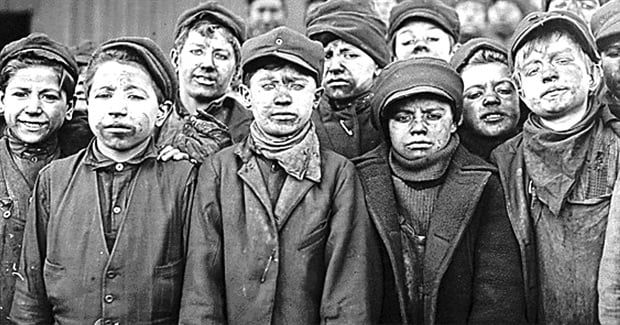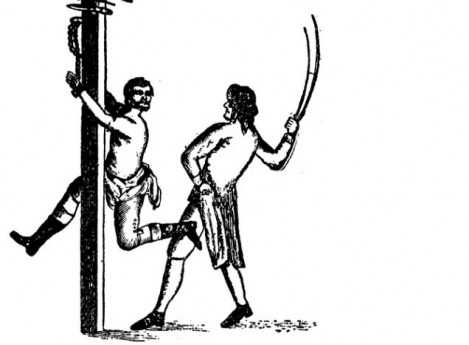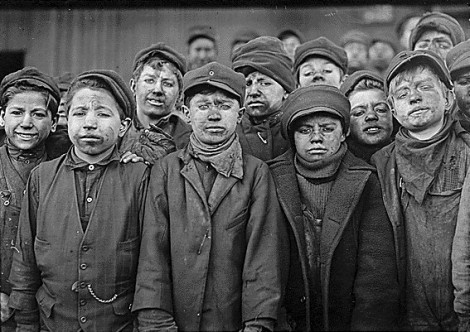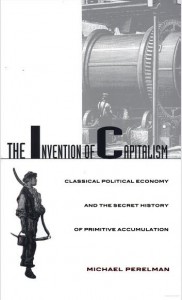.........................
'For me, it is becoming increasingly clear that the price of unregulated globalisation, mass immigration and the free movement of labour is paid for by the lower classes,'
- Mette Frederiksen
..........................
...........................
Vision
The red flag flutters over Cologne Cathedral.
Revolution over Germany. – –
Radiogram from Berlin:
“To the German people!
Land and soil belong to the nation.
The means of production are socialized.
Elections to the Council Congress are announced.
The verdicts of the People’s Court on all the enemies of the Socialist Fatherland, all those responsible for the old regime, are enforced.
The Treaty of Versailles is considered torn to pieces.
Greater Germany is socialist!
The imperialist bandit-states are approaching. The Rhine is to be held under all circumstances, the counter-attack is to be initiated!”
– – – Long columns, black on black, trek across the Rhine bridges.
Singing rings out.
Flags wave in rhythm with the tramp of marching feet.
Columns of workers, rifles shouldered; in their midst flags with the hammer and sickle. The bars of the Marseillaise – – “The Fatherland is in danger!” – – A short distance behind them come streamlined figures in brown shirts, above their heads the red swastika banner, and over that a red pennant with the symbols of labor, their armbands half-covered with red strips.
A new column, grey on grey, endless troops of the Stahlhelm behind the war flags of the Great War of 1914-1918, their flags also bedecked with the red pennant of the revolutionary uprising, and peasant formations beyond them.
And luminescent above all the flags, over red, black-white-red, and black banners, raising its wings, the black eagle of Prussia!
Singing roars through the columns of the army, and the chorus is always growing stronger, and all the troops take it up, grey, brown and red formations coming in:
“To the Rhine, to the Rhine,
To the German Rhine,
Guardians we all want to be!”
And a shout sounds out:
“Long live socialism!
We carry the red flags under the German eagle
Into France!
Forwards!”
The voice breaks off. –
Only the masses march.
Endless.
With different flags, in different dress, in the same step.
Marching in enemy territory. Suppressed freedom, bringing the Lord’s retribution for a life of human bondage.
This is the gateway to tomorrow.
The way to it?
The way we are!
TRANSLATED FROM KARL OTTO PAETEL’S DAS NATIONALBOLSCHEWISTISCHE MANIFEST (1933)
................................
.........................
"MOLOTOV: Khrushchev opposed Stalin and Leninist policy. He wanted changes in the Leninist policy pursued by Stalin and ultimately by all of us who supported Stalin. You know what the rightists were after? In the party? The rightists wanted to block us from pressing for the liquidation of the kulaks; they were champions of a pro-kulak policy. Even after the kulaks had been destroyed they continued to hold right-wing political views. So they maintained afterward that Stalin had pushed things too far, and that this had been a mistake. We saw this in Khrushchev, and spoke about it, and this was even openly acknowledged by the Central Committee under Stalin. Everyone makes mistakes. Lenin made mistakes, and Stalin made mistakes. Khrushchev was no exception. I had my own mistakes. Who is infallible? If, however, one has good intentions but is in error, he must be corrected …
Khrushchev hinted that Stalin had Kirov killed. There are some who still believe that story. The seeds of suspicion were planted. A commission was set up in 1956. Some twelve persons, from various backgrounds, looked through a welter of documents but found nothing incriminating Stalin. But these results have never been published."
..........................
..................
First they banned criticism of Israel, and I did not speak out—because I did not wish to be called "anti-Semitic"
Then they banned criticism of Islam, and I did not speak out— because I did not wish to be called "Islamophobic"
Then they banned criticism of the EU, and I did not speak out—because I did not wish to be called "xenophobic"
Then they banned criticism of the government — by the time I'd ceased to care what I was called....it was too late.
Political correctness relies upon political apathy and political timidity....
- Russell White
.........................
...........................
Israel: "a gang of hoodlums"
Kathleen Christisen, writing in Counterpunch:
"Words fail; ordinary terms are inadequate to describe the horrors Israel daily perpetrates, and has perpetrated for years, against the Palestinians. 60 years of atrocity perpetrated in the name of Judaism.
As it seeks to protect itself against phantom threats, the racist state becomes increasingly paranoid, its society closed and insular, intellectually limited. Setbacks enrage it; humiliations madden it. The state lashes out in a crazed effort, lacking any sense of proportion, to reassure itself of its strength.
“This society no longer recognizes any boundaries, geographical or moral,” wrote Israeli intellectual and anti-Zionist activist Michel Warschawski in his 2004 book Towards an Open Tomb: The Crisis of Israeli Society.
A military establishment that drops a 500-pound bomb on a residential apartment building in the middle of the night and kills 14 sleeping civilians, as happened in Gaza four years ago, is not a military that operates by civilized rules.
A military establishment that drops a 500-pound bomb on a house in the middle of the night and kills a man and his wife and seven of their children, as happened in Gaza four days ago, is not the military of a moral country.
A society that can brush off as unimportant an army officer’s brutal murder of a 13-year-old girl on the claim that she threatened soldiers at a military post — one of nearly 700 Palestinian children murdered by Israelis since the intifada began — is not a society with a conscience.
A government that imprisons a 15-year-old girl — one of several hundred children in Israeli detention — for the crime of pushing and running away from a male soldier trying to do a body search as she entered a mosque is not a government with any moral bearings. (This story, not the kind that ever appears in the U.S. media, was reported in the London Sunday Times. The girl was shot three times as she ran away and was convicted to 18 months in prison after she came out of a coma.)
Michel Warschawski writes of an “Israeli madness” and “insane brutality,” a “putrefaction” of civilized society, that have set Israel on a suicidal course. He foresees the end of the Zionist enterprise; Israel is a “gang of hoodlums,” he says, a state “that makes a mockery of legality and of civil morality. A state run in contempt of justice loses the strength to survive.”
- Peter Wilberg
..........................
Pelz, William A. "A People's History of Modern Europe", Pluto Press, London, 2016
..........................
.
********IMPORTANT ARTICLE*****
The Invention of Capitalism: How a Self-Sufficient Peasantry was Whipped Into Industrial Wage Slaves

“…everyone but an idiot knows that the lower classes must be kept poor, or they will never be industrious.”—Arthur Young; 1771
Our popular economic wisdom says that capitalism equals freedom and free societies, right? Well, if you ever suspected that the logic is full of shit, then I’d recommend checking a book called The Invention of Capitalism, written by an economic historian named Michael Perelmen, who’s been exiled to Chico State, a redneck college in rural California, for his lack of freemarket friendliness. And Perelman has been putting his time in exile to damn good use, digging deep into the works and correspondence of Adam Smith and his contemporaries to write a history of the creation of capitalism that goes beyond superficial The Wealth of Nations fairy tale and straight to the source, allowing you to read the early capitalists, economists, philosophers, clergymen and statesmen in their own words. And it ain’t pretty.
One thing that the historical record makes obviously clear is that Adam Smith and his laissez-faire buddies were a bunch of closet-case statists, who needed brutal government policies to whip the English peasantry into a good capitalistic workforce willing to accept wage slavery.
Francis Hutcheson, from whom Adam Smith learned all about the virtue of natural liberty, wrote: ”it is the one great design of civil laws to strengthen by political sanctions the several laws of nature. … The populace needs to be taught, and engaged by laws, into the best methods of managing their own affairs and exercising mechanic art.”
Yep, despite what you might have learned, the transition to a capitalistic society did not happen naturally or smoothly. See, English peasants didn’t want to give up their rural communal lifestyle, leave their land and go work for below-subsistence wages in shitty, dangerous factories being set up by a new, rich class of landowning capitalists. And for good reason, too. Using Adam Smith’s own estimates of factory wages being paid at the time in Scotland, a factory-peasant would have to toil for more than three days to buy a pair of commercially produced shoes. Or they could make their own traditional brogues using their own leather in a matter of hours, and spend the rest of the time getting wasted on ale. It’s really not much of a choice, is it?
But in order for capitalism to work, capitalists needed a pool of cheap, surplus labor. So what to do? Call in the National Guard!
Faced with a peasantry that didn’t feel like playing the role of slave, philosophers, economists, politicians, moralists and leading business figures began advocating for government action. Over time, they enacted a series of laws and measures designed to push peasants out of the old and into the new by destroying their traditional means of self-support.

“The brutal acts associated with the process of stripping the majority of the people of the means of producing for themselves might seem far removed from the laissez-faire reputation of classical political economy,” writes Perelman. “In reality, the dispossession of the majority of small-scale producers and the construction of laissez-faire are closely connected, so much so that Marx, or at least his translators, labeled this expropriation of the masses as ‘‘primitive accumulation.’’
Perelman outlines the many different policies through which peasants were forced off the land—from the enactment of so-called Game Laws that prohibited peasants from hunting, to the destruction of the peasant productivity by fencing the commons into smaller lots—but by far the most interesting parts of the book are where you get to read Adam Smith’s proto-capitalist colleagues complaining and whining about how peasants are too independent and comfortable to be properly exploited, and trying to figure out how to force them to accept a life of wage slavery.
This pamphlet from the time captures the general attitude towards successful, self-sufficient peasant farmers:
The possession of a cow or two, with a hog, and a few geese, naturally exalts the peasant. . . . In sauntering after his cattle, he acquires a habit of indolence. Quarter, half, and occasionally whole days, are imperceptibly lost. Day labour becomes disgusting; the aversion in- creases by indulgence. And at length the sale of a half-fed calf, or hog, furnishes the means of adding intemperance to idleness.
While another pamphleteer wrote:
Nor can I conceive a greater curse upon a body of people, than to be thrown upon a spot of land, where the productions for subsistence and food were, in great measure, spontaneous, and the climate required or admitted little care for raiment or covering.
John Bellers, a Quaker “philanthropist” and economic thinker saw independent peasants as a hindrance to his plan of forcing poor people into prison-factories, where they would live, work and produce a profit of 45% for aristocratic owners:
“Our Forests and great Commons (make the Poor that are upon them too much like the Indians) being a hindrance to Industry, and are Nurseries of Idleness and Insolence.”
Daniel Defoe, the novelist and trader, noted that in the Scottish Highlands “people were extremely well furnished with provisions. … venison exceedingly plentiful, and at all seasons, young or old, which they kill with their guns whenever they find it.’’
To Thomas Pennant, a botanist, this self-sufficiency was ruining a perfectly good peasant population:
“The manners of the native Highlanders may be expressed in these words: indolent to a high degree, unless roused to war, or any animating amusement.”
If having a full belly and productive land was the problem, then the solution to whipping these lazy bums into shape was obvious: kick ‘em off the land and let em starve.
Arthur Young, a popular writer and economic thinker respected by John Stuart Mill, wrote in 1771: “everyone but an idiot knows that the lower classes must be kept poor, or they will never be industrious.” Sir William Temple, a politician and Jonathan Swift’s boss, agreed, and suggested that food be taxed as much as possible to prevent the working class from a life of “sloth and debauchery.”
Temple also advocated putting four-year-old kids to work in the factories, writing ‘‘for by these means, we hope that the rising generation will be so habituated to constant employment that it would at length prove agreeable and entertaining to them.’’ Some thought that four was already too old. According to Perelmen, “John Locke, often seen as a philosopher of liberty, called for the commencement of work at the ripe age of three.” Child labor also excited Defoe, who was joyed at the prospect that “children after four or five years of age…could every one earn their own bread.’’ But that’s getting off topic…

Happy Faces of Productivity…
Even David Hume, that great humanist, hailed poverty and hunger as positive experiences for the lower classes, and even blamed the “poverty” of France on its good weather and fertile soil:
“‘Tis always observed, in years of scarcity, if it be not extreme, that the poor labour more, and really live better.”
Reverend Joseph Townsend believed that restricting food was the way to go:
“[Direct] legal constraint [to labor] . . . is attended with too much trouble, violence, and noise, . . . whereas hunger is not only a peaceable, silent, unremitted pressure, but as the most natural motive to industry, it calls forth the most powerful exertions. . . . Hunger will tame the fiercest animals, it will teach decency and civility, obedience and subjugation to the most brutish, the most obstinate, and the most perverse.”
Patrick Colquhoun, a merchant who set up England’s first private “preventative police“ force to prevent dock workers from supplementing their meager wages with stolen goods, provided what may be the most lucid explanation of how hunger and poverty correlate to productivity and wealth creation:
Poverty is that state and condition in society where the individual has no surplus labour in store, or, in other words, no property or means of subsistence but what is derived from the constant exercise of industry in the various occupations of life. Poverty is therefore a most necessary and indispensable ingredient in society, without which nations and communities could not exist in a state of civilization. It is the lot of man. It is the source of wealth, since without poverty, there could be no labour; there could be no riches, no refinement, no comfort, and no benefit to those who may be possessed of wealth.
Colquhoun’s summary is so on the money, it has to be repeated. Because what was true for English peasants is still just as true for us:
“Poverty is therefore a most necessary and indispensable ingredient in society…It is the source of wealth, since without poverty, there could be no labour; there could be no riches, no refinement, no comfort, and no benefit to those who may be possessed of wealth.”
***
Yasha Levine is a founding editor of The eXiled. You can reach him at levine [at] exiledonline.com.
Want to know more recovered history? Read Yasha Levine’s investigation into the life of Harry Koch, the man who spawned Charles and David Koch, the two most powerful oligarchs of our time:The Birth of the Koch Clan: It All Started In a Little Texas Town Called Quanah










No comments:
Post a Comment